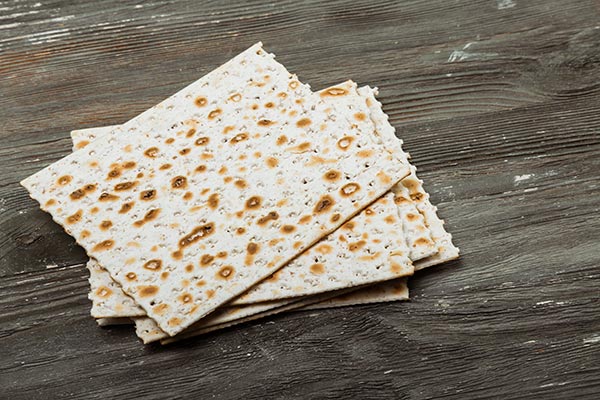Homesteading tips: How to make your chickens lay more eggs
08/03/2021 / By Zoey Sky

Chickens are one of the best animals to raise on your homestead because they can produce both eggs and meat. Caring for chickens isn’t too hard once you get the hang of it, but detailed below are some tips you can try if you want to make your chickens produce more eggs.
Different factors can affect how many eggs chickens lay. Some common reasons include having too much protein in their diet, not getting enough calcium and even boredom from lack of stimulation. (h/t to NewLifeOnAHomestead.com)
Keep your timeline in mind
Patience is key if you want to make your chickens lay more eggs, especially since they don’t start laying after they hatch out of their own eggs.
Note that most hens won’t lay their first eggs until they are at least 18 weeks of age. Also, some “late-blooming” breeds can only produce eggs when they’re 24 weeks or older. Some chicken breeds, such as hybrids like Golden Comets, can start laying eggs as early as 16 weeks, but most will be 18 weeks or later.
Finally, chicks that hatch later in the year, like during summer or fall, may delay laying until the winter has passed. In most cases, chickens only follow the 18 to 24-week “deadline” if they hatch normally during spring. While taking note of the expected laying times, remember that there are normal times around the year for chickens to stop laying once they’ve already started.
Chickens molt once a year, normally usually when they are at least one year old. When chickens molt, they will lose their feathers to grow new ones. Most of the time, chickens will also stop laying eggs until their feathers grow back. Molting is natural, but knowing when to expect it, usually during fall and for at least once a month, can help relieve some of the stress. When chickens are molting, you can feed them a higher protein diet.

Feed them a healthy, quality diet
Raising laying hens doesn’t require you to break the bank. You just need to give them a basic, quality diet.
If chickens don’t lay enough eggs or don’t lay any eggs at all, there might be something wrong with their diet. If you encounter this problem, try feeding them a steady diet of premium laying mash or pellets with occasional supplements like fresh vegetables, fruits and other treats.
However, you should change your chickens’ diet gradually, especially if you are changing their feed to a new blend. Changing their diet at one can shock and overload your chickens, which might make them less likely to lay more eggs. (Related: Homesteading hacks: 15 Ways to feed your chickens (for free).)
Alternatively, you can increase the portion sizes for your hens. Try using automatic feeders instead of only feeding your chickens several times a day. Giving your chickens access to food at all times can make them likely to eat more and lay more eggs.
Give them treats
You can easily modify your chickens’ diets to get them to lay more eggs by giving them more of their regular, high-protein and high-calcium feed. At the same time, you can supplement with treats.
There’s no need to overfeed your chickens, but some kinds of treats can help your chickens lay more eggs, particularly near the winter months. Your options include:
- Apples
- Berries
- Bread
- Cooked eggs and eggshells
- Cooked spaghetti
- Cottage cheese
- Cracked corn
- Japanese beetles
- Leafy greens
- Mealworms and earthworms
- Pumpkin and sunflower seeds
- Scratch grains
- Tomatoes
- Warm oatmeal
- Watermelon and other watery fruits
If you give your chickens treats, do it only once a day and limit the number of treats your chickens get to ensure that they don’t have too many treats and not enough feed. You can do this by only giving them treats in the evening, after they’ve had their fill of their regular feed.
Give them fresh water
Chickens need lots of fresh water to lay eggs so refill and clean waterers daily. If you have many chickens, prepare multiple watering stations so the chickens don’t have to compete.
Inspect your chickens regularly
A hen will sometimes refuse to lay eggs if she has a health problem. Keep your flock healthy by checking the hens regularly for any health problems.
Common issues might include cuts or broken bones. Once treated, your hens will start laying more eggs.
Check hens for parasites
You should also check your hens regularly for parasites, especially internal ones that can cause health issues. Chickens can also get external parasites like lice or mites.
Signs of parasites include itchy, red areas on their bodies or areas where feathers have been plucked, with the skin pecked raw.
Check your chicken coop for mites at night, which is when the red-brown pests are most common. The best way to protect chickens from internal and external parasites is to keep a clean coop.
If you’re not sure what’s wrong, add a couple of cloves of garlic or a drop or two of apple cider vinegar to your chickens’ feed to naturally keep your hens parasite-free.
Clean the chicken coop regularly
Keeping your chicken coop clean will help hens lay lots of eggs that stay clean. If you’re using a low-maintenance style of coop management like the deep litter bedding method, add fresh bedding weekly or more frequently.
Secure your chicken coop
Protecting chickens from predators can also improve egg production. By securing their coop, you ensure that your chickens aren’t too stressed to lay eggs.
Secure their coop against common predators like cats, foxes, hawks, owls, raccoons, rats and weasels.
Keep their nest boxes tidy
You should have at least one nesting box for every four chickens. But if your chickens aren’t laying enough eggs, you should try adding a few more areas for them to do so.
Keep their nest boxes clean since chickens won’t lay eggs in a dirty environment.

Monitor the temperature
The temperature can also affect egg production, especially if it’s too cold or too hot. While you can’t control the weather, you can take measures to make your chickens more comfortable so they can continue to lay eggs.
During summer, give them plenty of shade and ventilation in the coop. When the weather turns cold, add some ice cubes to their waterers.
Ventilation is also crucial during winter. You can also feed your hens warm treats at night to help then stay warm.
Check for eggs in hiding spots
If you’ve tried the other suggestions and are still having a hard time making your hens lay more eggs, the eggs could be hidden.
Sometimes, hens will hide their eggs in odd spots to protect them from predators or if there aren’t enough nest boxes. Check every nook and cranny of their coop and the areas of your homestead that they frequent.
You might find some eggs hidden in places where you don’t normally look.
Cull hens as a last resort
Hens that are too old won’t lay as many eggs as younger chickens. Chickens can live up to a decade or so if you take care of them, but if your main goal is egg production and not raising a chicken as a pet, it might be time to cull members of the flock.
You don’t always have to kill chickens during culling. You can simply find them a new home at a neighboring homestead.
Raise healthy chickens in your homestead and make them lay more eggs by keeping their coop clean, feeding them regularly and checking them for any health problems.
Sources include:
Tagged Under: animal care, backyard chickens, chickens, egg production, food independence, homesteading, livestock, off grid, preparedness, prepping, self sufficiency, self-reliance, self-sustainability, survival, Survival Tips, tips
RECENT NEWS & ARTICLES
COPYRIGHT © 2017 PREPAREDNESS NEWS



















